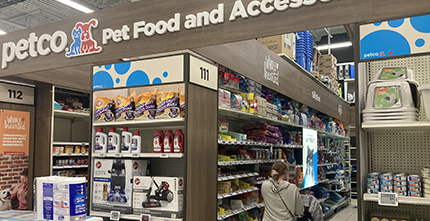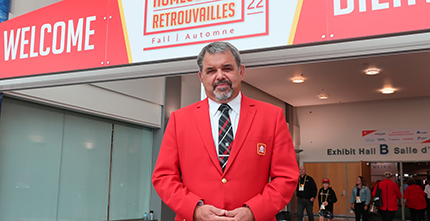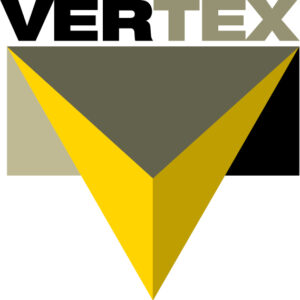| |
IN THIS ISSUE:
- What this industry faced during Covid was daunting. What awaits will be amazing
- Canadian Tire adjusts assortments as consumers tighten their belts
- Evolving Home Hardware involves culture and consistency, says CEO
- Why retail loyalty programs matter more than ever
PLUS: Castle turns 60, GMS makes acquisition, BuildDirect closes share sale, Mike Meckley’s new position at Henkel, U.S. construction spending edges up, small business owners turn to data tools, Grainger names new SVP, Hernandez now product development manager for Quality Craft, Kevin Bradley promoted at Uscan, and more!
|
|
| |
| |
 |
 |
| What this industry faced during Covid was daunting. What lies ahead will be amazing
The past three years have forced all of us to face incredible challenges, while also providing unprecedented opportunities. Our industry rose to those challenges with untiring courage and maximized the opportunities with resoluteness and generosity.
The home improvement industry is one of the major drivers of the Canadian economy. Representing almost $59 billion in sales at retail, it accounts for almost nine percent of this country’s retail sales. Our industry is also an essential service, whether one is fixing a leaky toilet or building an entire house. (All figures and data here are drawn from either our Hardlines Retail Report or our Hardlines Market Share Report. — Editor)
There are nearly 5,000 stores in our industry. More than 1,000 of them are hardware stores and some 3,100 are building centres and home centres. At least 300 of them are large-format outlets, or big boxes, which despite their small numbers are retail powerhouses, representing almost 30 percent of all sales in the sector.
More than 500 of those almost 5,000 stores are Canadian Tire stores, which is almost a retail category of its own. Counting just the Tire’s sales of products that fall within the traditional hardware and home improvement sector (excluding sporting goods, automotive sales and services, and financial services), those stores manage to account for 13.5 percent of the sales generated by this industry.
The Big Four represent almost two-thirds of all sales generated in our sector. They are (in order of home improvement revenue) The Home Depot Canada, Home Hardware Stores, Lowe’s Canada, and Canadian Tire. Positions one and three are American-owned; positions two and four are Canadian-owned. Only Home Hardware is dealer-owned, although Lowe’s Canada serves some 210 dealer-owned RONA stores as well.
But despite the power of corporate owners, this industry rests largely in the hands of independent merchants. They are small businesses, typically family-owned and operated, comprising the backbone of the Canadian economy.
At the same time, the large chains are powered by the dedication and vision of the people working in those corporate stores. Whether overseeing a dozen people at a local, rural hardware store or a team of 200 at a big box, the managers of these operations exemplify a passion and leadership that could fill a dozen business books.
Today’s home improvement dealers and managers include some of the finest retailers in the country. And these stores are more than sellers of merchandise. They are hubs for their communities. Throughout Covid, the support they provided to those communities was nothing short of inspiring.
Hardlines is honoured to share these stories and is committed to uncovering and telling the stories that make this industry amazing throughout 2023 and beyond. We look forward to you accompanying us as we do.
|
 |
Canadian Tire adjusts assortments as consumers tighten their belts
Canadian Tire has changed its product mix as the impacts of rising interest rates and inflation affect consumer behaviour.
Those changes were recognized as far back as last fall and were already making their mark on the company’s results by early November, when the company released its third-quarter results.
According to Greg Hicks, president and CEO of Canadian Tire Corp., the chain has been moving away from many higher-priced leisure products in the direction of its “essential” assortments, in the light of an anticipated recession.
“First, at CTR, there is evidence of more performance separation for essential and non-essential categories. Consumer demand is shifting to our essential product categories such as tires, automotive parts, plumbing, and pet,” Hicks explained on a call to analysts at the time. That shift was most pronounced among customers who were not using CTC’s Triangle Rewards program, “who have decreased their spend in non-essential categories such as outdoor cooking, exercise equipment, electronics, and furniture.”
In addition, Hicks noted that people were coming to Canadian Tire to shop for deals. “Customers at CTC are looking for discounted value as our percentage of baskets in which all items in the basket are discounted is on the rise.”
The result? CTC has reduced inventories of big-ticket items such as barbecues and bicycles, and other “amusement” products within Canadian Tire’s non-essential basket
“Those are the types of categories that have been experiencing some declines,” said TJ Flood, president of Canadian Tire Retail. “They are down about 30 percent.” He added that one essential category, automotive, “more than offsets that.”
Commenting specifically on CTC’s pet category increases, Hicks cited an aggressive rollout of its Petco store-within-a-store program to 31 additional Canadian Tire stores during Q3, driving sales within the category by 19 percent in those stores, “as well as a 34 percent increase in customers shopping pet with us for the first time.” He said more than 80 percent of Canadian Tire stores will have the Petco department by the end of January.
“The essential product portfolio is a big part of our overall business,” Hicks said. “And you can expect us to adjust our resource allocation strategies to put more focus on this segment of our business going forward.”
|
 |
Evolving Home Hardware involves culture and consistency, says CEO
Providing tools for independents to compete against large corporate chains is at the heart of efforts by Home Hardware president and CEO, Kevin Macnab, to update and change the systems and processes at the company. We continue here our conversation with Macnab that was conducted during the company’s dealer market last fall. (Part one of this interview appeared in last week’s edition.—Editor)
Macnab talked at length about the importance of finding the right mix of consistency and localization. “We need the dealers to help localize those assortments. So yes, we can build systems that will help us. But we’re very unique in our individual markets. So it’s really the dealers that feed back and say, ‘Actually, in this particular market, I know the data might say X, but can you take a look at my store, because really Y sells better?’”
The company will continue to move toward a more standardized offering overall, with core assortments in all the stores. Macnab noted that the information flow back and forth between the dealers and head office will help refine those assortments—and it’s paying off at the cash register.
“The localization is based on dealer knowledge.” Some standardization of systems is necessary, he admits, “because many corporations—I’ve done this myself—look to localize [assortments] using systems. And that’s good to a certain extent. But then the dealers know in some of the markets, things that we just won’t, unless we walk the store. If any of us walks the store, we know, ‘Yeah, that's not going to quite work in that market.’”
At the end of the day, if the customers are happy, the dealers are happy, said Macnab. He referred to the many new category planograms that were being introduced at the Home Hardware Market. These programs are popular with the dealers, he said, because they are driving results.
“We can already see the benefit, because we’re using a lot more data now to make the choices on what we believe the end consumer is looking for. And then what we’re looking for the dealers to do is help localize it and present it in-store.”
Macnab talked about how important it’s been to build an effective management team at Home Hardware. That has meant continuing to tap into and build on the existing corporate culture.
“We’re bringing people who fit the culture. It’s a wonderful culture, a wonderful, warm supportive culture for the dealers.” He paused here to emphasize the point: “Culture means organization. Culture means everything. It’s all critical to success, organizational culture. You cannot execute successful strategies without the right organizational culture.”
That culture, he pointed out, must include the dealers and the corporate team, and here he offers his own language. “But more importantly, for us, and this is how I am looking at things, is at a more enterprise level. Okay, that’s a bit of a different terminology for the group, because we have a lot of dealer-owners in all the communities across Canada and we have a separate corporation.”
But despite these two factions, there must be an overriding approach or vision that binds them. “That’s the enterprise culture. That’s what drives us.”
|
 |
| Why retail loyalty programs matter more than ever
Once considered a value-add or a way to stand out from competitors, loyalty programs have become increasingly central to retailers’ marketing strategies. As online sales have grown, so has the importance of keeping customers aligned virtually—and loyalty programs offer the means to do that.
In fact, long-standing loyalty partnerships were the norm for decades, and those relationships remain strong for many groups. For example, Kent and TIMBER MART continue their longstanding partnerships with the Air Miles rewards program.
But in recent years, loyalties (pardon the pun—Editor) have shifted. Lowe’s Canada took on Air Miles in 2015, a year before it acquired RONA, which already had the program. But Lowe’s Canada terminated the relationship at the end of 2021. The company said it was ending the partnership to focus on daily low prices, personalized offers, and its newly formed VIPpro program—a rewards program driven by an app available to contractor customers of Lowe’s, RONA, and Réno-Dépôt.
Last year, Home Hardware broke ties with Aeroplan and soon after announced a partnership with the Scene+ rewards program. Starting this summer, cardholders will be able to redeem points at Home Hardware stores. Home Hardware is in good company. Empire Co., parent of grocery chain Sobeys, also dropped Air Miles and actually acquired a stake in the Scene+ rewards program.
But the real advantage of a loyalty program is in the data, something that companies like Canadian Tire are counting on to drive its awareness of who its customers are and what they want.
A good loyalty program has to be integral to a retailer’s message. Canadian Tire’s overwhelming success with the Triangle Rewards program reflects that. The Triangle name was a way to do two things. First, it provides an online update and alternative to the storied Canadian Tire money. Second, it is a way to offer a unified loyalty points program across all of Canadian Tire’s retail banners, including PartSource, Helly Hansen, and Marks. Today, the retailer claims that 70 percent of Canadian households are Triangle members.
“In Q3, we effectively engaged our loyalty customers and loyalty sales grew to $2.7 billion, an increase of four percent,” said CTC president and CEO Greg Hicks following the release of the company’s quarterly results. “Overall, loyalty sales outpaced non-member sales in the quarter, a trend we expect to continue. So we are increasingly laser-focused on driving member engagement.”
|
 |
W. W. Grainger has named Nancy Berardinelli-Krantz as SVP and chief legal officer, effective Jan. 30. She is currently SVP and deputy chief legal officer at Eaton Corp. Berardinelli-Krantz will succeed John Howard, who is retiring in July after 23 years of service.
Mike Meckley is starting a new position as U.S. national sales manager – national accounts, paint, plumbing and MRO at Henkel. He was formerly national sales manager for Canada.
Rolando Hernandez is now product development manager for Quality Craft, reporting to Dennis Hale, president. He was most recently with Home Products International.
Kevin Bradley has been promoted to the role of sales account executive at Uscan Industrial Fasteners, a division of Richelieu. He was formerly Uscan’s national sales manager.
|
|
 |
DID YOU KNOW...?
... that our latest instalment of the Hardlines Podcast Series is now live? In this episode, we meet Derek Smith, VP of the Ace Canada division at Peavey Industries. He talks about the challenges of taking over the Ace business, especially as Covid hit, developing a wholesale hardware business, and forging a partnership to get building materials to the Ace dealers. Sign up now to get updates about the latest podcasts in your inbox! |
 |
 |
| RETAILER NEWS
Castle Building Centres Group is marking 60 years in business in 2023. The group got its start in 1963 when six Ontario independent lumber dealers formed BOLD Lumber (Buying Organization of Lumber Dealers). It adopted its current name in 1982. Today it boasts more than 300 locations and has a presence in every province as well as Nunavut. Its 2021 sales by all members, according to the 2022 Hardlines Retail Report, amounted to an estimated $1.9 billion. (Castle has marked its anniversary with a special video tribute: click here to view.)
Vancouver-based online LBM seller BuildDirect.com Technologies Inc. has closed a second round, or tranche, of sales of shares. The sale involved the issuing of a total of 1,121,622 common shares at a price of $0.37 each, for total gross proceeds of $415,000. BuildDirect says it intends to use the money from the sale “to continue to advance BuildDirect’s strategy and for general working capital purposes.” The issuing of shares was a non-brokered, private placement and subject to a hold period that ends May 4.
Gypsum Management & Supply has announced the acquisition of Tanner Bolt and Nut, founded in 1979 and based in Brooklyn, N.Y. Tanner president Jeffrey Tannenbaum and his team will continue to oversee the business, retaining the Tanner brand name. At the same time, GMS announced new greenfield locations in New York; Greenville, N.C.; and Chester, Va. It has also opened new stores under the AMES banner in Fresno, Calif., Palm Bay, Fla.; and Concord, N.C. |
 |
 |
Gypsum Management & Supply has announced the acquisition of Tanner Bolt and Nut, founded in 1979 and based in Brooklyn, N.Y. Tanner president Jeffrey Tannenbaum and his team will continue to oversee the business, retaining the Tanner brand name. At the same time, GMS announced new greenfield locations in New York; Greenville, N.C.; and Chester, Va. It has also opened new stores under the AMES banner in Fresno, Calif., Palm Bay, Fla.; and Concord, N.C. |
 |
 |
ECONOMIC INDICATORS
Investment in U.S. construction unexpectedly edged up by 0.2 percent in November, following an equivalent decline in October. The increase, however, was driven by activity in the non-residential sector, as residential construction spending was down 0.5 percent. That included a 2.9 percent drop in single-family projects, which outweighed gains in the multi-family sector. (U.S. Commerce Dept.) |
 |
 |
NOTED
Small business owners are increasingly turning to data tools to grow their enterprises, the Globe and Mail reports. Those resources include My Main Street, a federally funded partnership between the Canadian Urban Institute and the Economic Developers Council of Ontario. It provides market research, data analysis, and funding assistance to small businesses. The Canadian Chamber of Commerce has its own program, the Business Data Lab, launched last year in conjunction with Statistics Canada. Patrick Gill, the lab’s senior director, said it aims to “democratize” data, giving small businesses access to the same tools major corporations enjoy. |
 |
 |

|
OVERHEARD...
“Different from last quarter, the migration into our better, best price range of the architecture has slowed. It’s still up, but it has slowed. So, that has put some upward influence on our AUR … And so we certainly saw more COGS impact in terms of negotiating through line reviews and schedules, etc., with factories … We have headwinds for sure, relative to the U.S. dollar, but there are tailwinds relative to the RMB depreciating … So, those would be kind of a number of the variables that we look at in determining what the right ECL is for the quarter.”
—The executive team at Canadian Tire Corp., TJ Flood, Greg Hicks, and Gregory Craig respectively, on a call with analysts following the release of the company’s Q3 results, explaining, well, their love of acronyms. |
 |
|
 |
 |
|
| |
Classified Ads
|
|

Position: Key Account Executive
Responsibilities: Sales to Retailers in the Canadian Market
Product: Primarily Seasonal and Hardware Categories
Location: Toronto / Working Remote
Compensation: Base + Commission
The Company: Vertex Sales
About Vertex:
Vertex Sales is a sales agency representing non-competing manufacturers’ product categories spanning the Hardware, Housewares, Electrical, and Seasonal product categories. Vertex provides sales solutions for consumer products marketers / companies.
Contact: info@vertexbrands.com |
Looking to post a classified ad? Email Michelle for a free quote. |
| |
|
|
Privacy Policy | HARDLINES.ca
HARDLINES is published weekly (except monthly in December and August) by
HARDLINES Inc.
© 2023 by HARDLINES Inc.
HARDLINES™ the electronic newsletter www.HARDLINES.ca
Phone: 416.489.3396; Fax: 647.259.8764
Michael McLarney — President— mike@hardlines.ca
Steve Payne — Editor— steve@hardlines.ca
Geoff McLarney — Associate Editor— geoff@hardlines.ca
David Chestnut — VP & Publisher— david@hardlines.ca
Michelle Porter— Marketing & Events Manager— michelle@hardlines.ca
Accounting — accounting@hardlines.ca
The HARDLINES "Fair Play" Policy: Reproduction in whole or in part is very uncool and strictly forbidden and really and truly against the law. So please, play fair! Call for information on multiple subscriptions or a site license for your company. We do want as many people as possible to read HARDLINES each week — but let us handle your internal routing from this end!
1-3 Subscribers: $495
4 -6 Subscribers: $660
7
-10 Subscribers: $795
11-20 Subscribers $1,110
21-30 Subscribers $1,425
We have packages for up to 100 subscribers!
For more information call 416-489-3396 or click here
You can pay online by VISA/MC/AMEX
at our secure website, by EFT, or send us money. Please make cheque payable to HARDLINES.
|
| |
|
|